
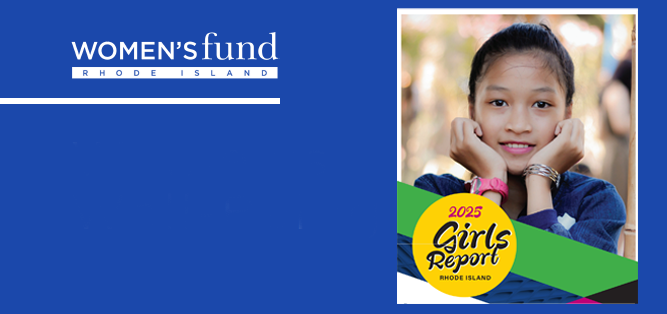
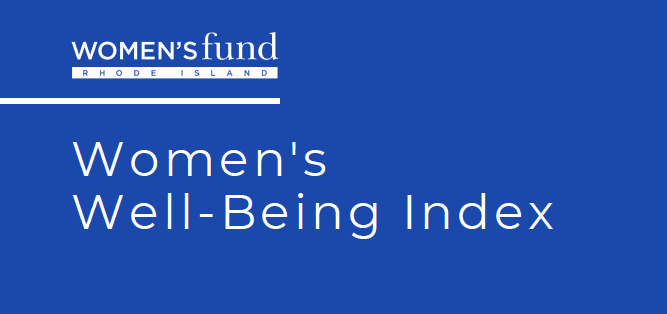

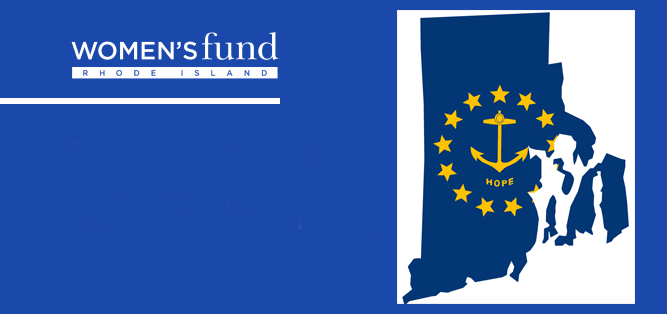
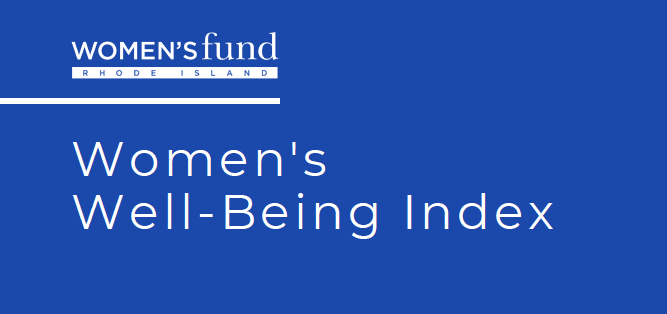
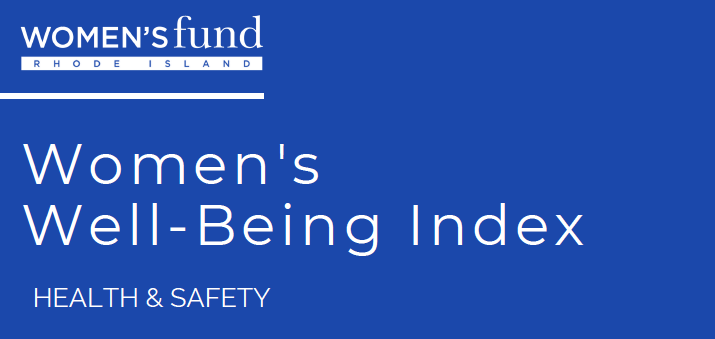
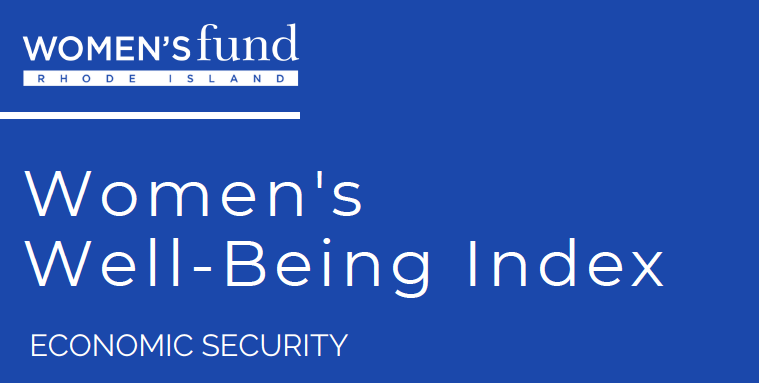
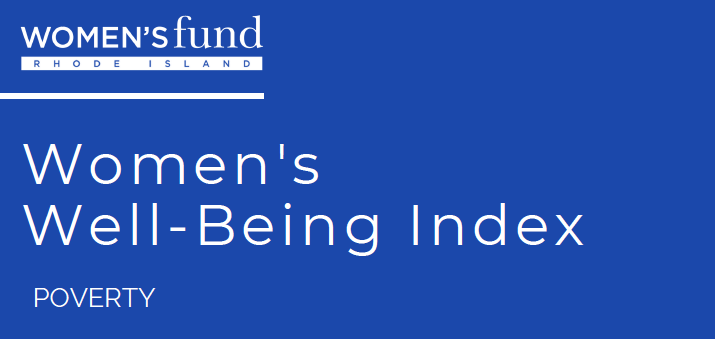
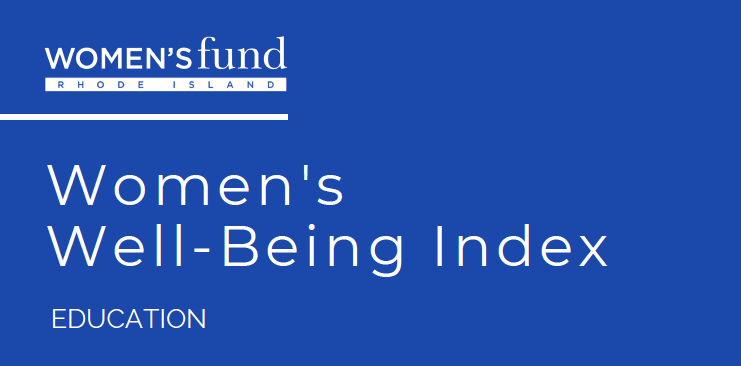
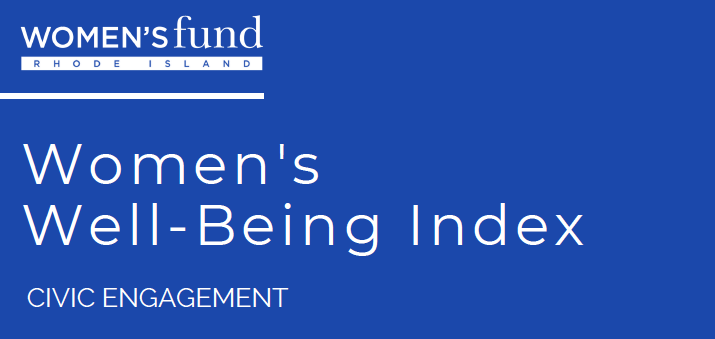
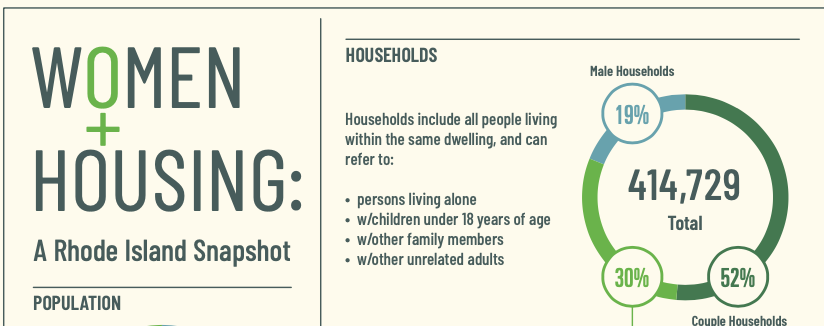
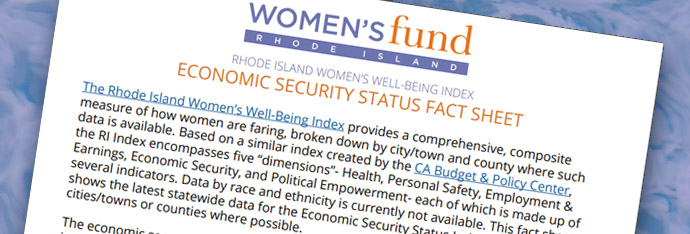
The Rhode Island Women’s Well-Being Index provides a comprehensive, composite measure of how women are faring, broken down by city/town and county where such data is available. These fact sheets are a compilation of each dimension's policy briefs and show the latest statewide data for each dimension and ranks cities/towns or counties where possible.
View Report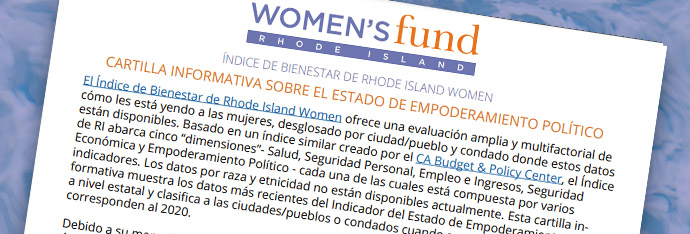
El Índice de Bienestar de Rhode Island Women ofrece una evaluación amplia y multifactorial de cómo les está yendo a las mujeres, desglosado por ciudad/pueblo y condado donde estos datos están disponibles. Basado en un índice similar creado por el CA Budget & Policy Center, el Índice de RI abarca cinco “dimensiones”- Salud, Seguridad Personal, Empleo e Ingresos, Seguridad Económica y Empoderamiento Político - cada una de las cuales está compuesta por varios indicadores.
View Report.png)
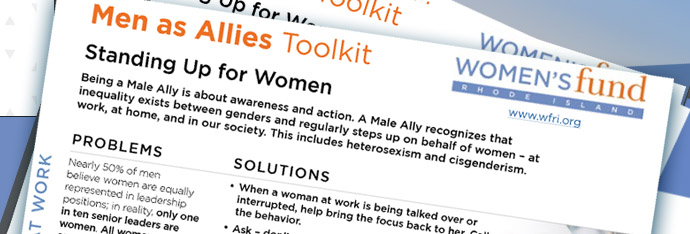
Being a Male Ally is about awareness and action. A Male Ally recognizes that inequality exists between genders and regularly steps up on behalf of women – at work, at home, and in our society. This includes heterosexism and cisgenderism.
Download Toolkit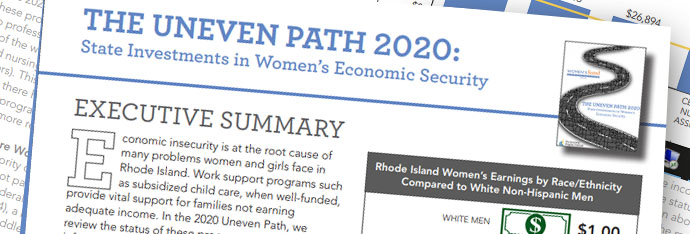
This executive summary highlights the findings from our full Uneven Path research report. Both reports discuss the status of work supports and subsidized child care, as well as highlights two professions where women primarily comprise the workforce. The executive summary is best for those who have less time to review the full data.
Uneven Path Summary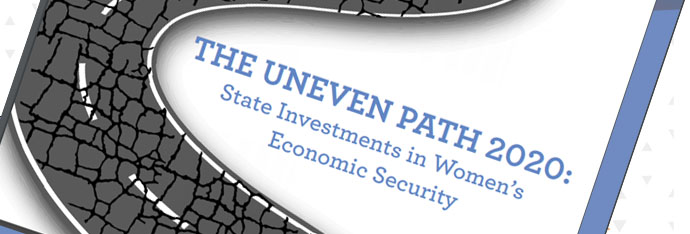
In the 2020 Uneven Path report, we review the status of subsidized child care and provide information about two professions where women comprise the majority of the workforce: child care and caregiving. The report demonstrates progress in strengthening programs that women and girls rely on, and indicates that more must be done.
Uneven Path Full Report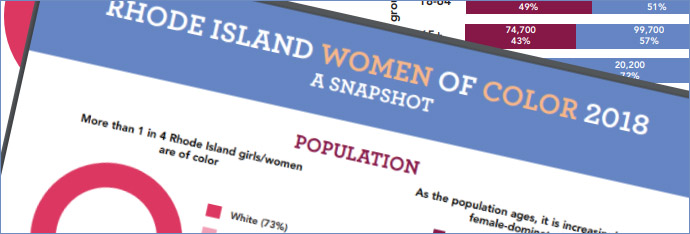
This report examines the status of women of color in RI's economy, documenting the economic challenges they to face in terms of wages, poverty rates, workforce and education participation, housing and family care. The report was done in partnership with The Economic Progress Institute, representing data collected in 2016 and 2017. Interested parties are invited to join community conversations being held throughout RI during the first quarter of 2019 (see our events calendar for dates and locations).
View the infograph here. | Descarga en español aquí.
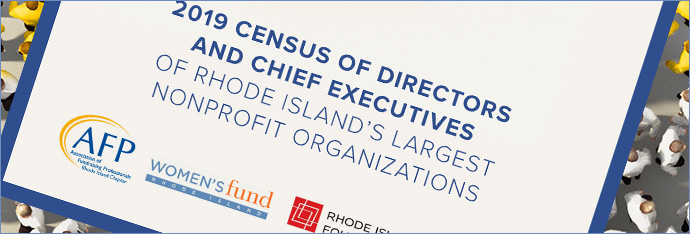
Done in partnership with the Association of Fundraising Professionals - RI chapter, this report provides a baseline for nonprofits to consider what can be done to diversify the leadership pipeline for their organizations at both the CEO and board level. From a fundraising perspective, we believe diversity is critical to increasing the dollars raised towards the mission and expanding donor networks.
View Report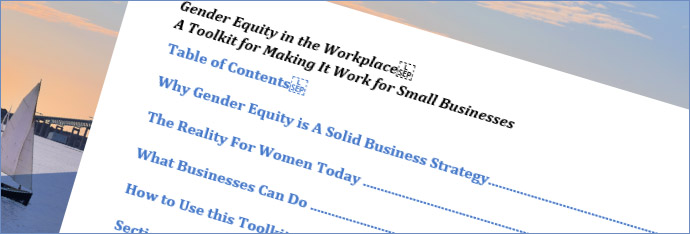
This toolkit identifies best practices in promoting gender diversity in the workplace, based on policy, research and interviews with employers. The report includes the following sections: 1) Recruiting Women to the Workplace, 2) Hiring and Promoting Women in the Workplace and 3) Keeping Women in the Workplace. Under each heading are specific methods businesses can use to address diversity challenges, listed by the level of resource investment required.
View Toolkit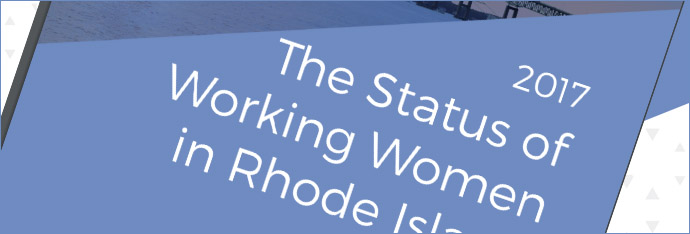
This report examines the status of women in RI's economy, documenting the economic challenges women continue to face and the ongoing disparities between women and men in terms of wages, earnings and poverty rates. The report was done in partnership with The Economic Progress Institute, representing data collected in 2015 and 2016.
View the report here and the summary infographic here.
View Infographic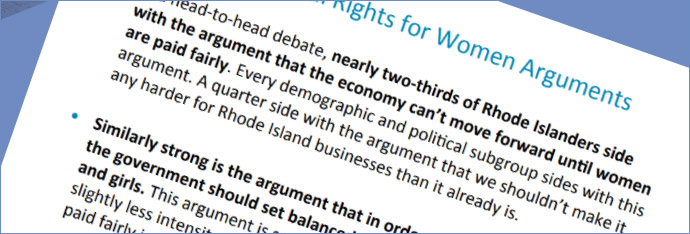
Rhode Island voters overwhelmingly support policies that advance women's economic security and believe that until we have these policies in place, our economy won't move forward. Conducted between April 28 and May 4 2014, the poll of 500 Rhode Island residents who are likely to vote in the upcoming elections focused on policy issues that we at Women's Fund of Rhode Island have researched and analyzed over the years in our work to advance gender equality in the state.
View Presentation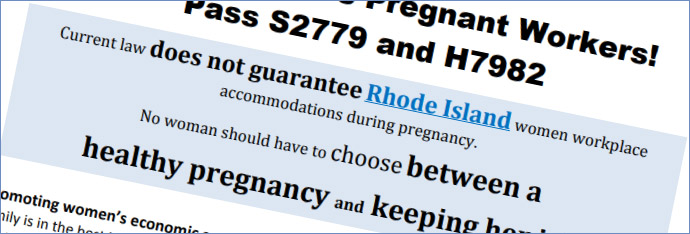
Before the June 2015 passing of a pregnancy accomodations act in Rhode Island, Women's Fund distributed this informational flyer about why securing these policies is so important. Our Women's Policy Institute is responsible for writing the same policy that has now been drafted into law.
Fact Sheet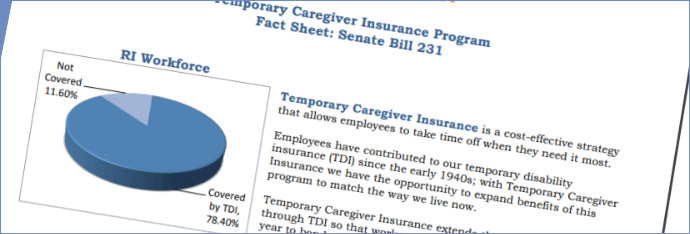
This act, which at the time of publication was only a proposal, has now established within our state’s temporary disability insurance (TDI) program a temporary caregiver insurance (TCI) program to enable an employee to take up to 8 weeks of leave per year, to care for a seriously ill family member or to bond with a new child.
View Fact Sheet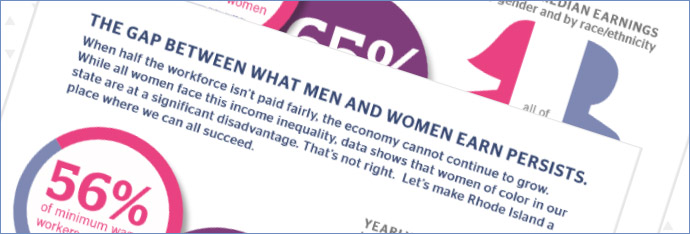
The gap between what men and women earn persists. When half of the workforce isn't paid fairly, the economy cannot continue to grow. While all the women face this income inequality, data shows that women of color in our state are at a significant disadvantage. That's not right. Let's make Rhode Island a place where we can all succeed.
View Infographic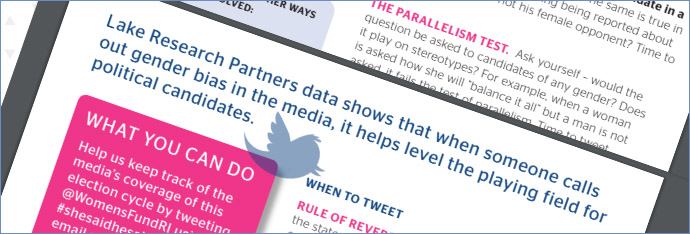
She Said, He Said - Lake Research Partners data shows that when someone calls out gender bias in the media, it helps level the playing field for political candidates. You can help us keep track of the media's coverage of this election cycle.
Fact Sheet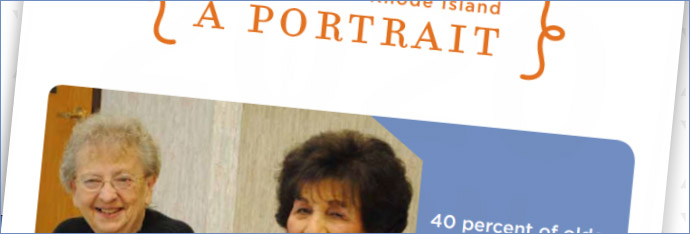
Healthy. Active. Connected. Most women have an idea how they'd like to spend their older years. They want to live with dignity, economic security, and access to resources that will allow them to maintain their health and independence and their connections to those around them. Most women attribute a continued bond with family and community as a strong indicator of whether one will have a sense of well-being. But does every woman have a chance at achieving these goals?
View Report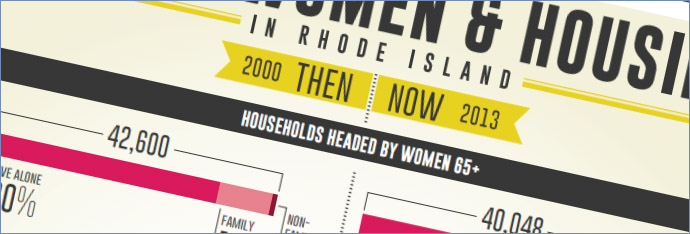
In partnership with HousingWorksRI, this new infographic shows that more senior women “heads of household” own their own homes today than in 2000. For those women who own their homes and have a mortgage, 62 percent are burdened by their housing costs compared to 50 percent in 2000.
View Infographic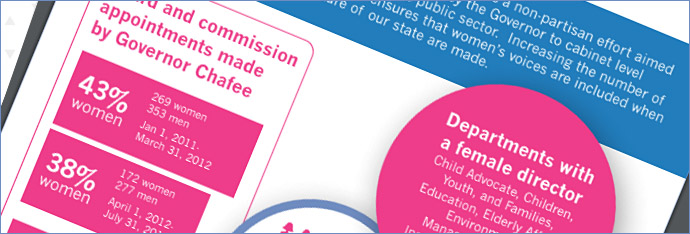
Then-Governor Lincoln Chafee continued to have a strong record of appointing women to cabinet level positions, state boards and commissions. Nearly 75 percent of the boards we monitor had women serving on them. However, as we celebrated the improvements we have made, there were still some gaps.
Please note that since printing this report, Governor Chafee appointed a woman, Dr. Nancy Breen, professor of chemistry at Roger Williams University, to the previous all-male Atomic Energy Commission.
RIGAP Report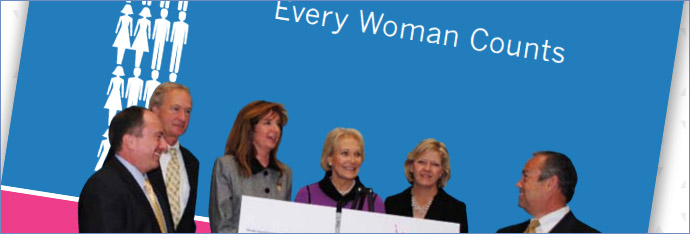
RI-GAP now monitors 166 of the most active and influential boards and commissions and senior staff and agency directors appointed by the Governor. In order to do so, RI-GAP reviews the searchable database available on the Secretary of State Web site (sos.ri.gov). Researchers review each name to determine the gender of the appointee. When necessary, researchers also review secondary information (such as other Web sites and Providence Journal articles) to determine the gender of the appointee. Read the document here.
View Now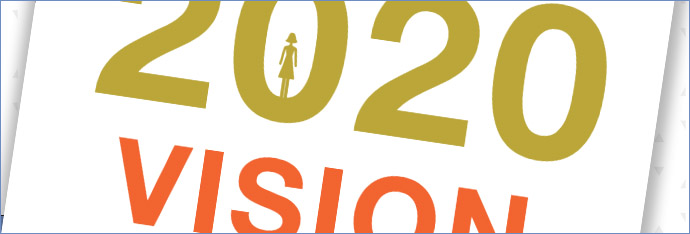
A survey of 22 of the largest not-for-profit and for-profit businesses in Rhode Island on initiatives and best practices that advance women, including a commitment to women’s leadership, advancement of women into senior leadership, wage equity and women on boards.
View Report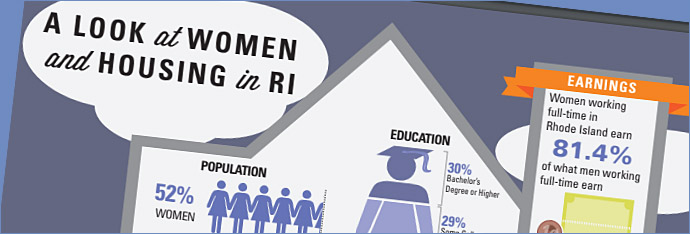
This Infographic is a collaboration with HousingWorks RI that looks at the extreme housing cost burden facing women in Rhode Island, especially those with children under the age of 18.
View Infographic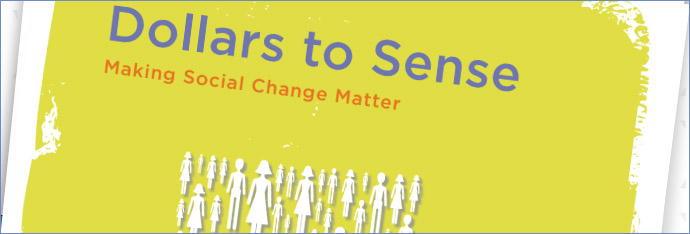
Over the years, Women's Fund of Rhode Island has funded organizations that change the landscape of our political process. Grantees engage low-income girls, women from immigrant communities, women living in poverty without educational opportunities necessary to succeed, and women who have been victimized by abusers. Yet, with funding from the Women's Fund these women and girls have become the backbone of social change. Together, their voices are heard.
View Report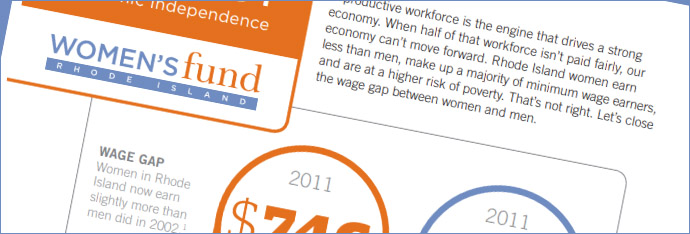
A productive workforce is the engine that drives a strong economy. When half of that workforce isn't paid fairly, our economy can't move forward. Rhode Island women earn less than men, make up a majority of minimum wage earners, and are at a higher risk of poverty.
View Report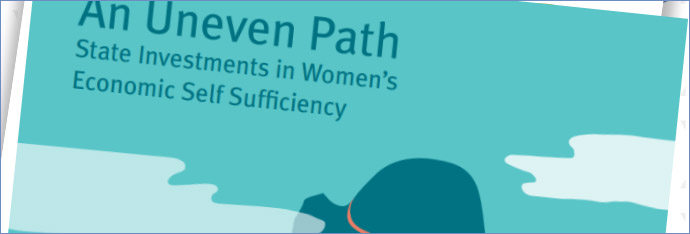
The state budget is Rhode Island's single most important public policy document. State spending tells us a great deal about which public services, projects, programs and populations are considered a priority. One important use of public funds is to improve the economic well-being of residents. Like all states, R.I. has invested state funds in programs that help low- and modest-income working mothers and their families make ends meet.
View Report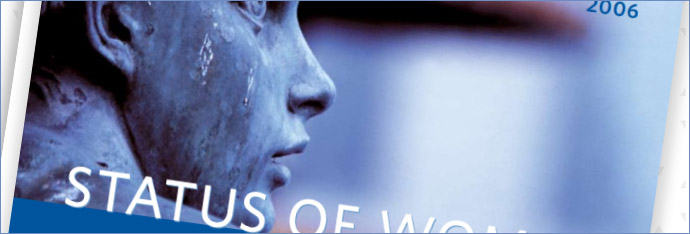
Rhode Island women continue to face barriers to political, economic and social equality and the status of women in the state has deteriorated on several key measures since the Status of Women in Rhode Island was published in 2002. Women are more likely to be poor, to lack health coverage and to work part-time than they were then. Rhode Island women continue to earn less than men and are more likely to work in low-paid service and administrative jobs.
View Report